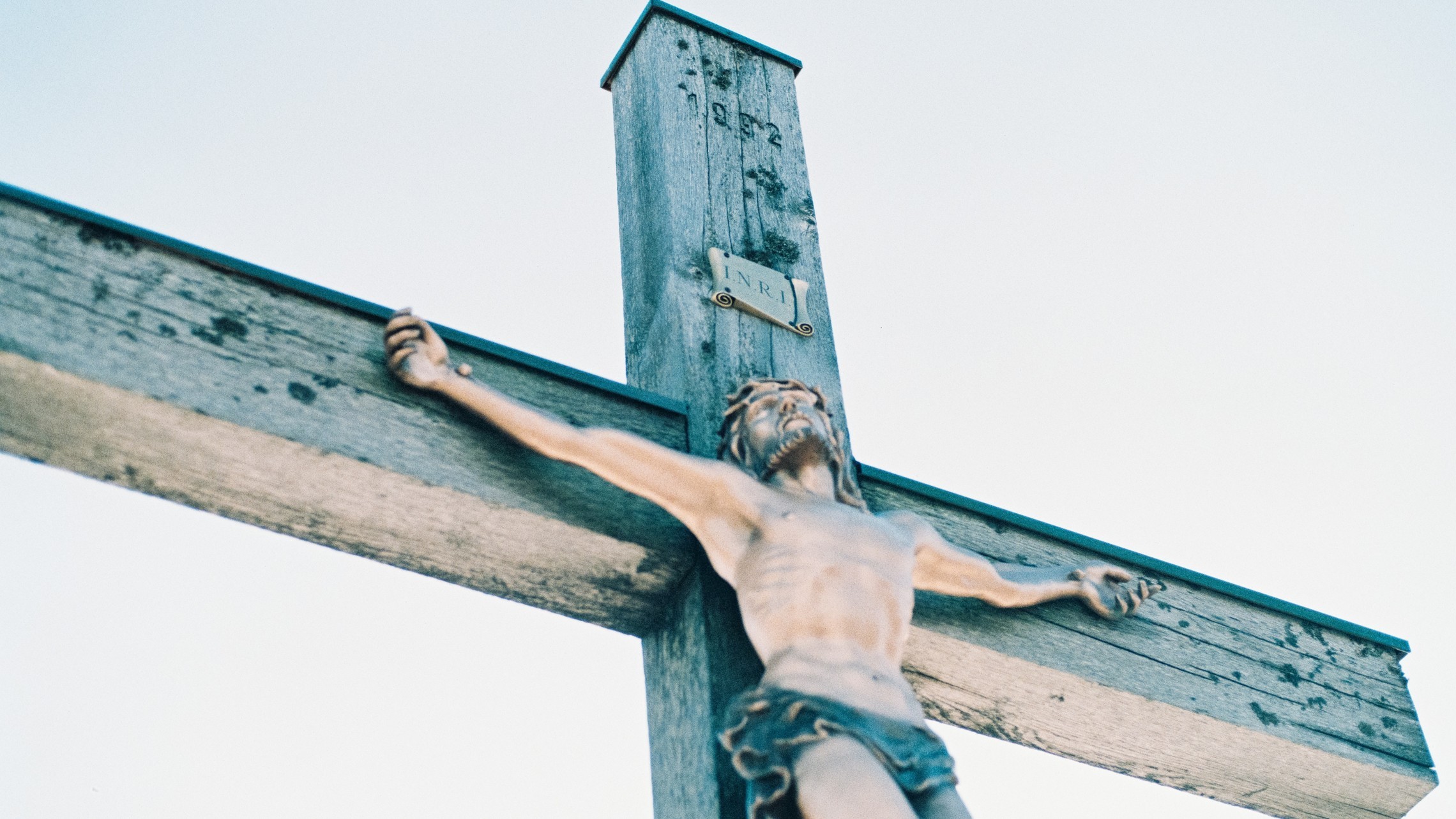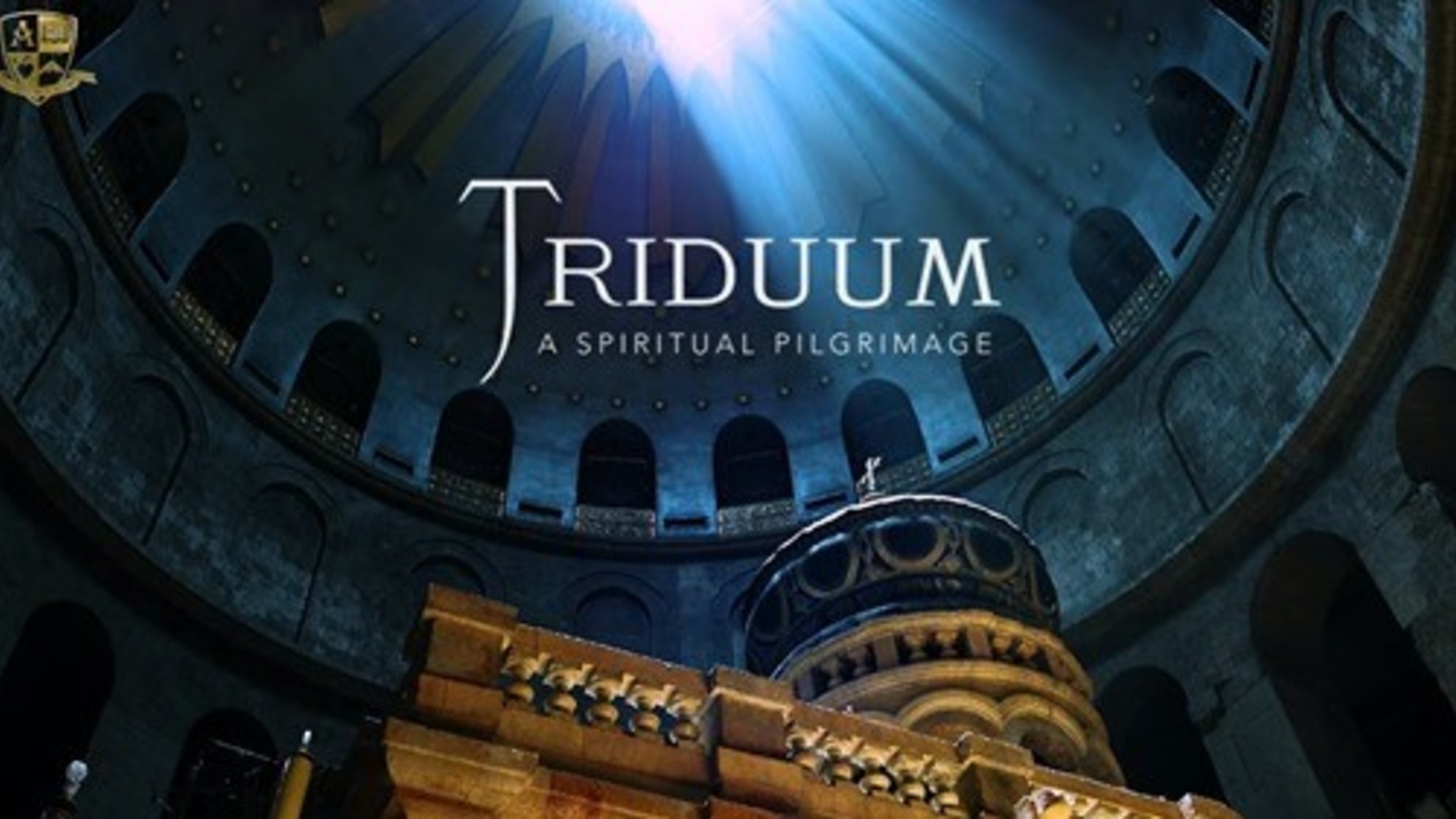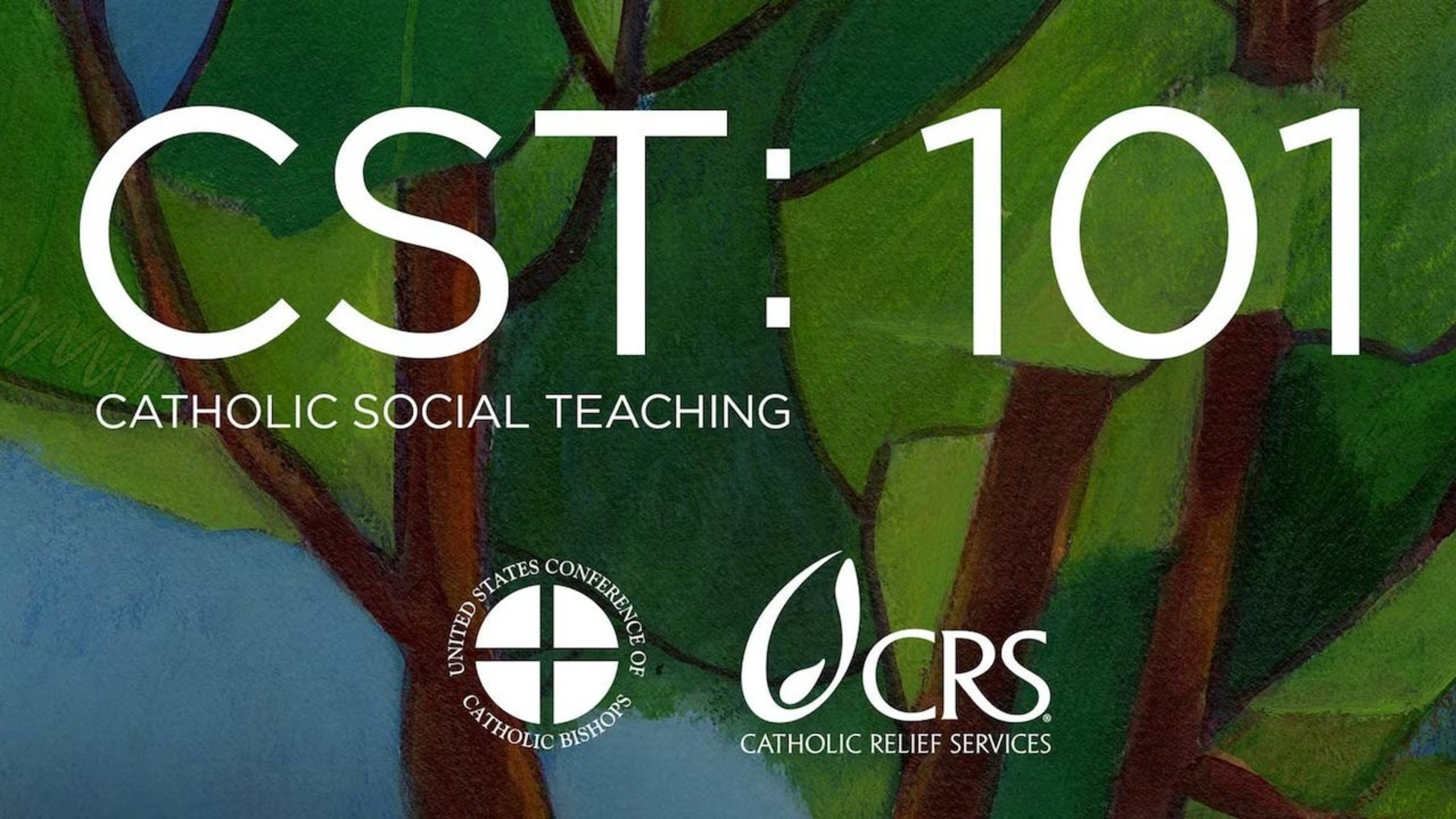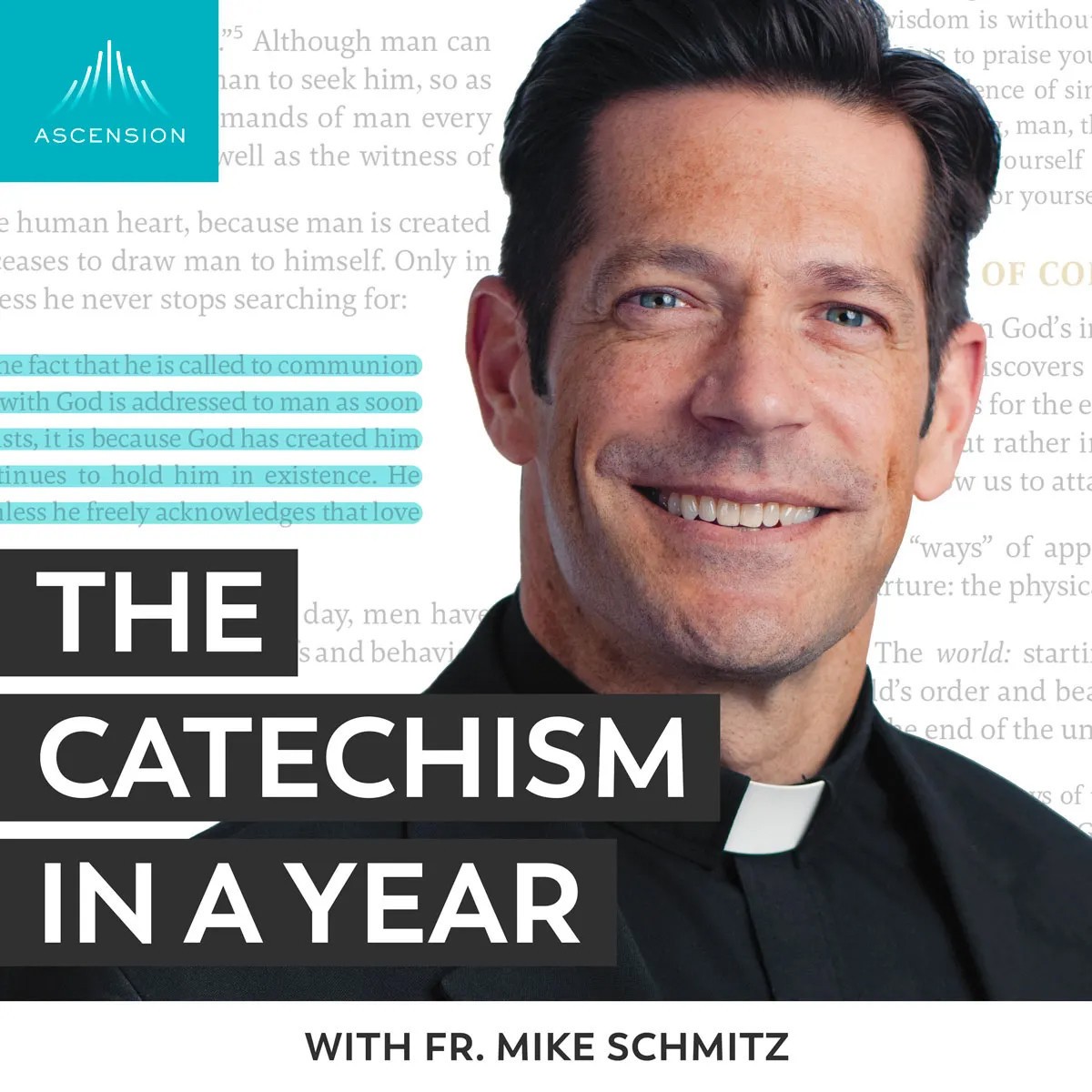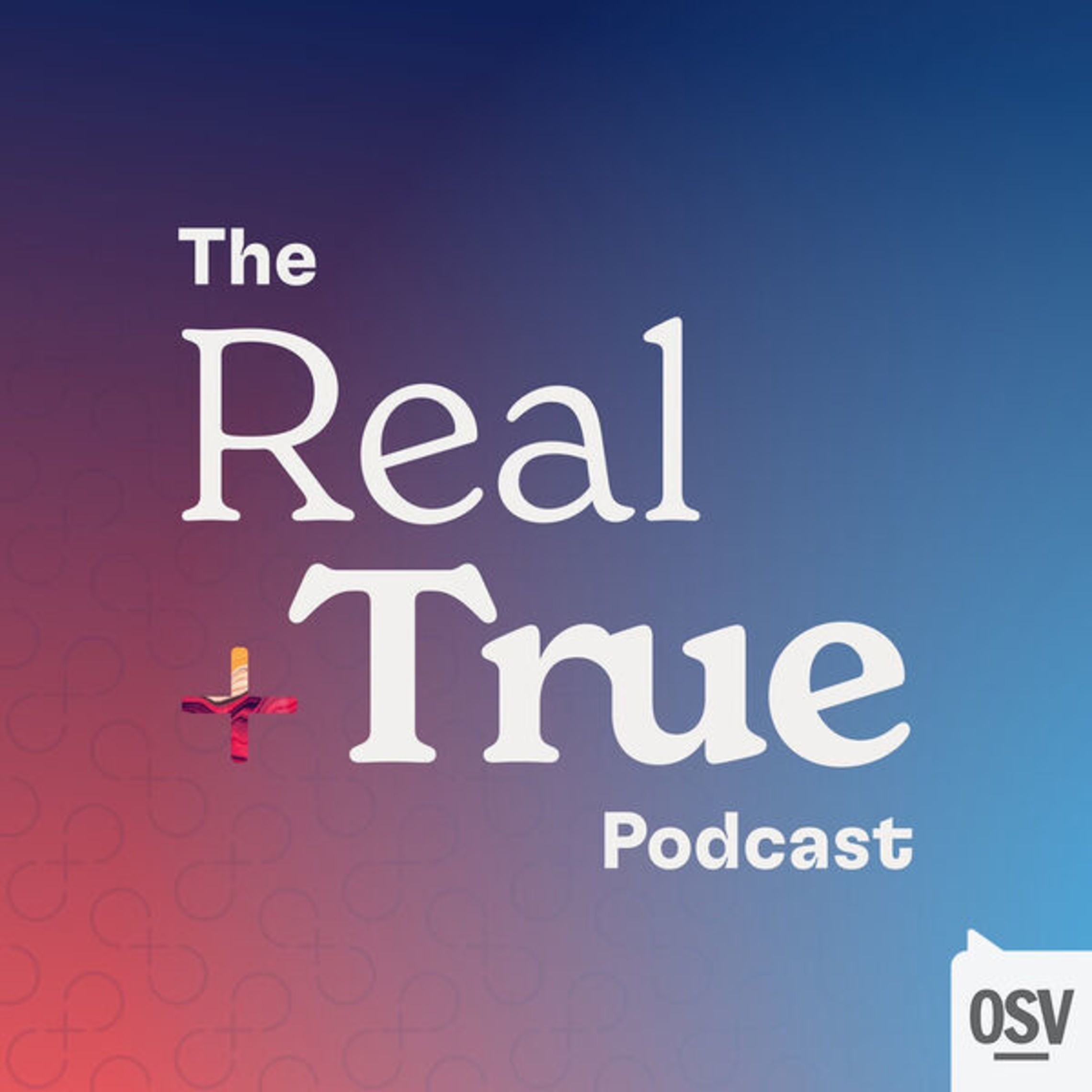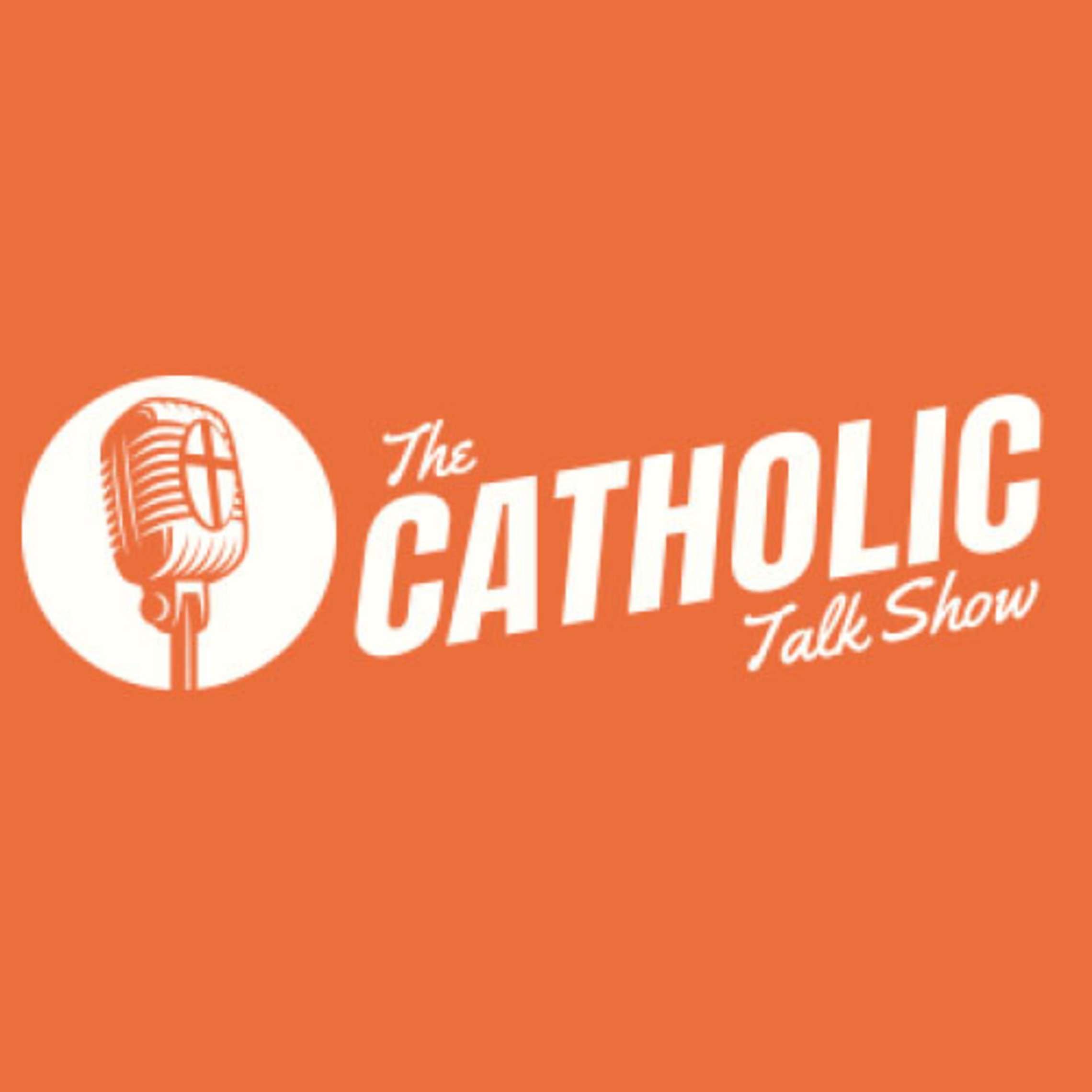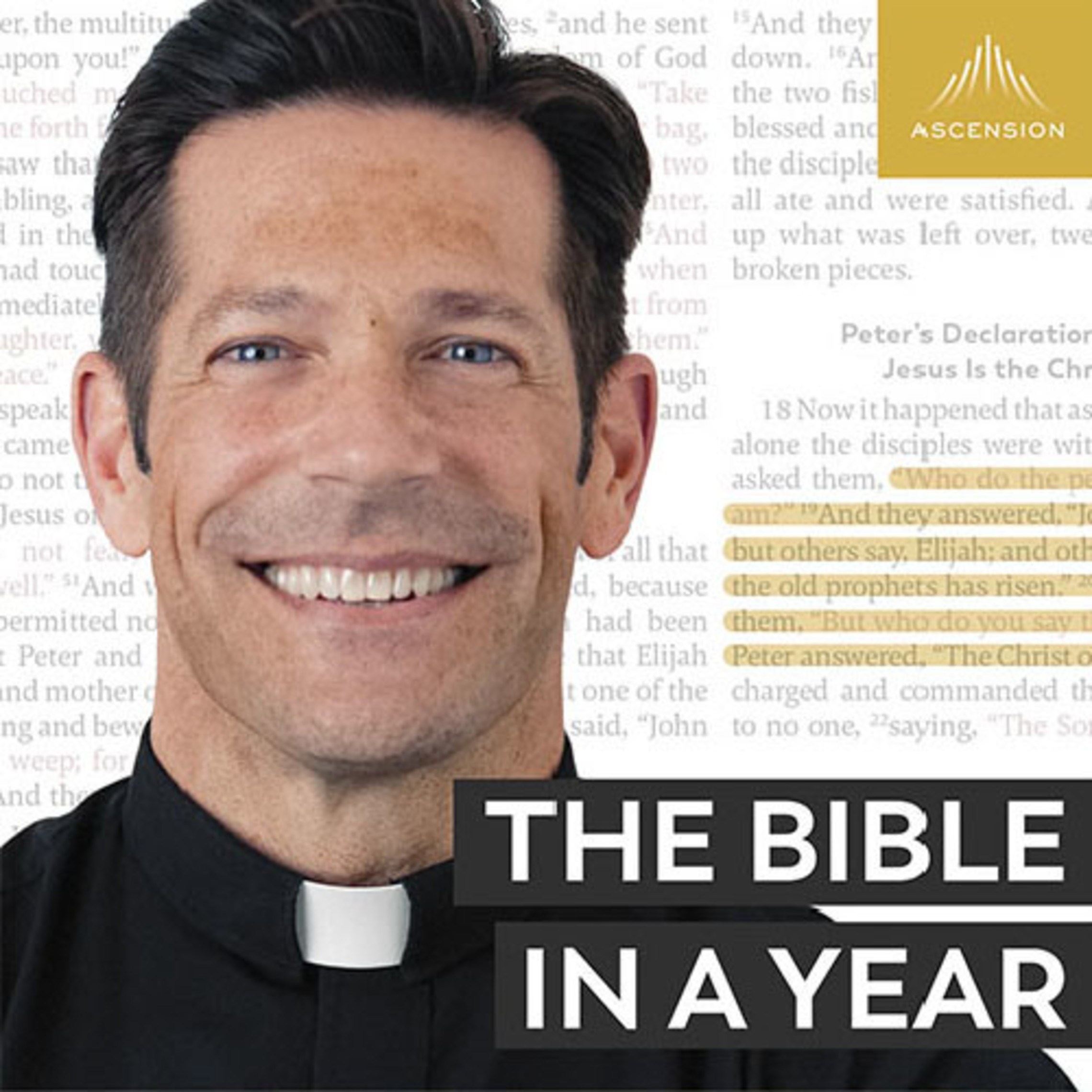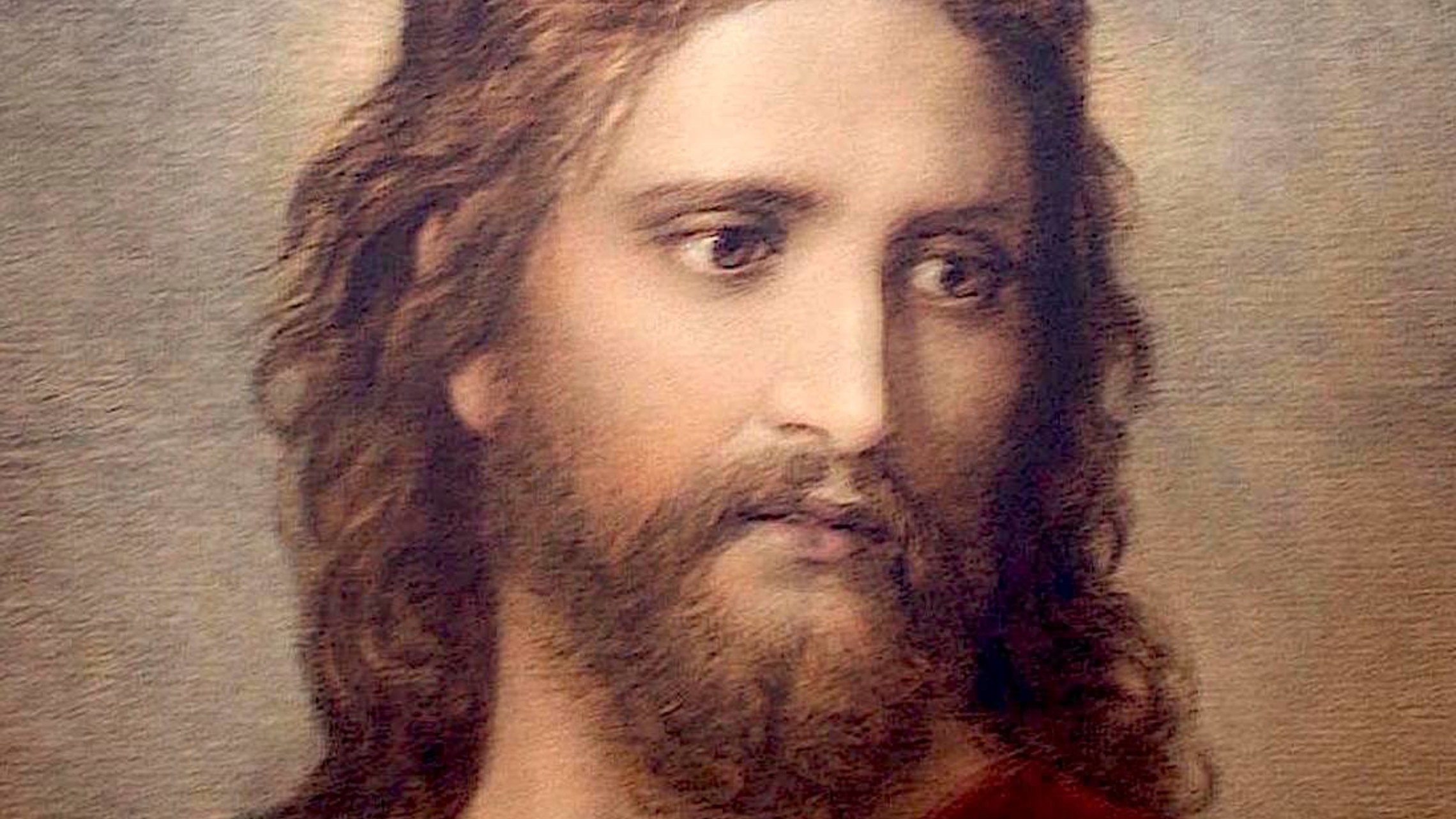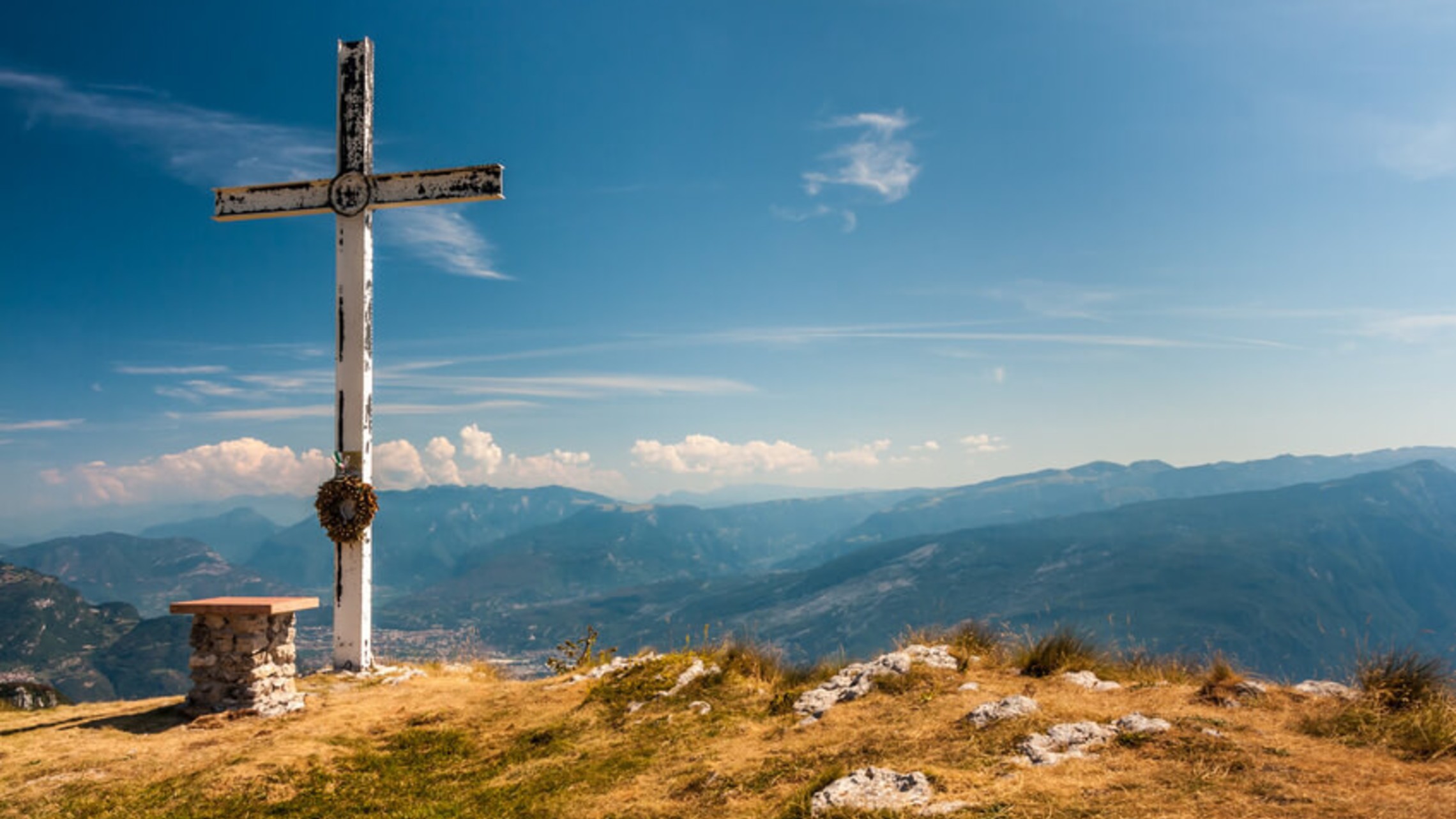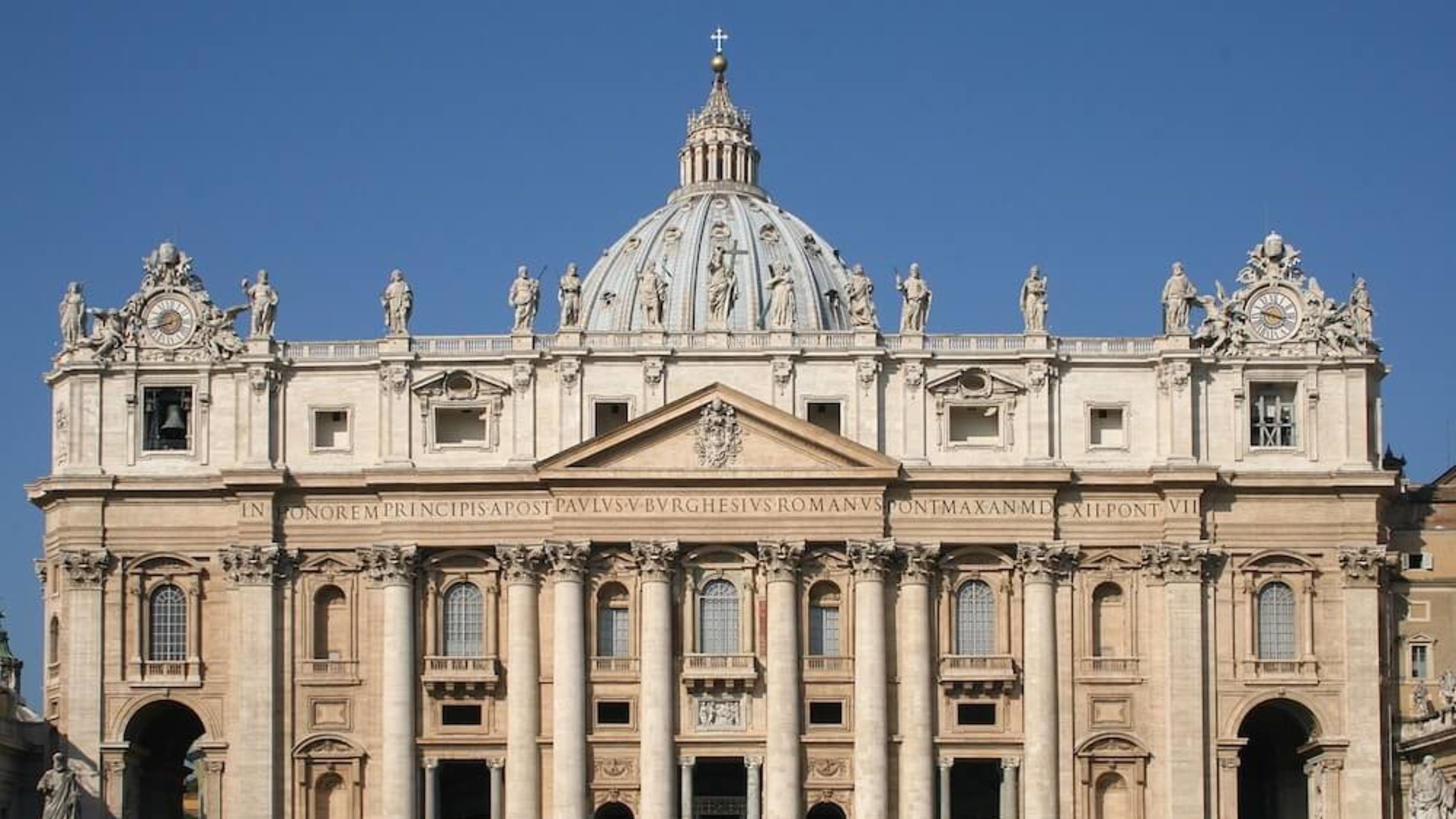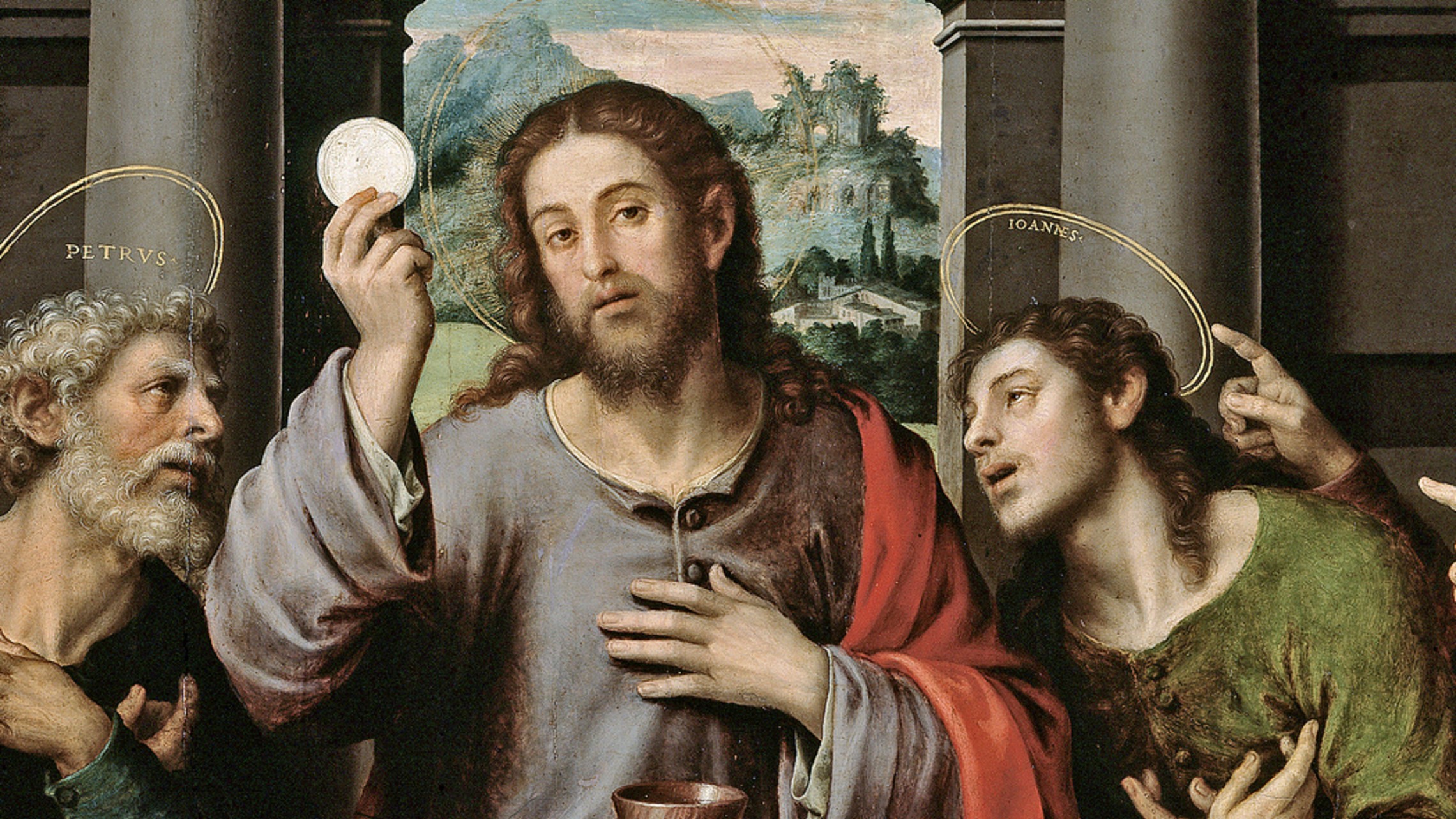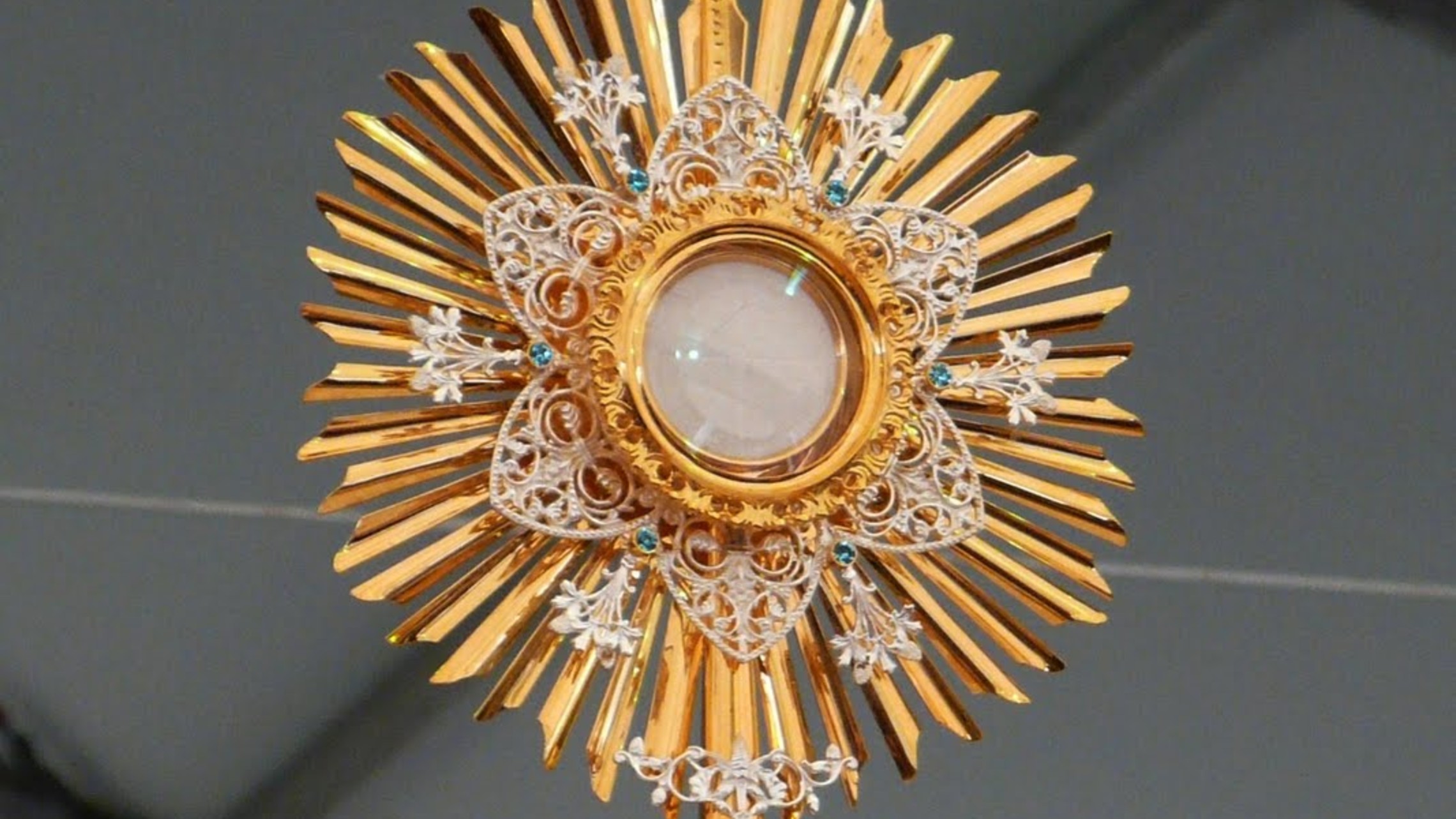Seasonal Resources
Any book which inspires us to lead a better life is a good book.
– Blessed Fulton Sheen
2024 National Eucharistic Congress Playlist
Featured Podcasts
Daily Readings
- Readings for the Memorial of Saint Elizabeth of Hungary, Religious
[From the descendants of Alexander's officers]
there sprang a sinful offshoot, Antiochus Epiphanes,
son of King Antiochus, once a hostage at Rome.
He became king in the year one hundred and thirty seven
of the kingdom of the Greeks.
In those days there appeared in Israel
men who were breakers of the law,
and they seduced many people, saying:
"Let us go and make an alliance with the Gentiles all around us;
since we separated from them, many evils have come upon us."
The proposal was agreeable;
some from among the people promptly went to the king,
and he authorized them to introduce the way of living
of the Gentiles.
Thereupon they built a gymnasium in Jerusalem
according to the Gentile custom.
They covered over the mark of their circumcision
and abandoned the holy covenant;
they allied themselves with the Gentiles
and sold themselves to wrongdoing.
Then the king wrote to his whole kingdom that all should be one people,
each abandoning his particular customs.
All the Gentiles conformed to the command of the king,
and many children of Israel were in favor of his religion;
they sacrificed to idols and profaned the sabbath.
On the fifteenth day of the month Chislev,
in the year one hundred and forty-five,
the king erected the horrible abomination
upon the altar of burnt offerings
and in the surrounding cities of Judah they built pagan altars.
They also burned incense at the doors of the houses and in the streets.
Any scrolls of the law which they found they tore up and burnt.
Whoever was found with a scroll of the covenant,
and whoever observed the law,
was condemned to death by royal decree.
But many in Israel were determined
and resolved in their hearts not to eat anything unclean;
they preferred to die rather than to be defiled with unclean food
or to profane the holy covenant; and they did die.
Terrible affliction was upon Israel.
R. (see 88) Give me life, O Lord, and I will do your commands.
Indignation seizes me because of the wicked
who forsake your law.
R. Give me life, O Lord, and I will do your commands.
Though the snares of the wicked are twined about me,
your law I have not forgotten.
R. Give me life, O Lord, and I will do your commands.
Redeem me from the oppression of men,
that I may keep your precepts.
R. Give me life, O Lord, and I will do your commands.
I am attacked by malicious persecutors
who are far from your law.
R. Give me life, O Lord, and I will do your commands.
Far from sinners is salvation,
because they seek not your statutes.
R. Give me life, O Lord, and I will do your commands.
I beheld the apostates with loathing,
because they kept not to your promise.
R. Give me life, O Lord, and I will do your commands.
R. Alleluia, alleluia.
I am the light of the world, says the Lord;
whoever follows me will have the light of life.
R. Alleluia, alleluia.
As Jesus approached Jericho
a blind man was sitting by the roadside begging,
and hearing a crowd going by, he inquired what was happening.
They told him,
"Jesus of Nazareth is passing by."
He shouted, "Jesus, Son of David, have pity on me!"
The people walking in front rebuked him,
telling him to be silent,
but he kept calling out all the more,
"Son of David, have pity on me!"
Then Jesus stopped and ordered that he be brought to him;
and when he came near, Jesus asked him,
"What do you want me to do for you?"
He replied, "Lord, please let me see."
Jesus told him, "Have sight; your faith has saved you."
He immediately received his sight
and followed him, giving glory to God.
When they saw this, all the people gave praise to God.
Lectionary for Mass for Use in the Dioceses of the United States, second typical edition, Copyright © 2001, 1998, 1997, 1986, 1970 Confraternity of Christian Doctrine; Psalm refrain © 1968, 1981, 1997, International Committee on English in the Liturgy, Inc. All rights reserved. Neither this work nor any part of it may be reproduced, distributed, performed or displayed in any medium, including electronic or digital, without permission in writing from the copyright owner.
Lo, the day is coming, blazing like an oven,
when all the proud and all evildoers will be stubble,
and the day that is coming will set them on fire,
leaving them neither root nor branch,
says the LORD of hosts.
But for you who fear my name, there will arise
the sun of justice with its healing rays.
R. (cf. 9) The Lord comes to rule the earth with justice.
Sing praise to the LORD with the harp,
with the harp and melodious song.
With trumpets and the sound of the horn
sing joyfully before the King, the LORD.
R. The Lord comes to rule the earth with justice.
Let the sea and what fills it resound,
the world and those who dwell in it;
let the rivers clap their hands,
the mountains shout with them for joy.
R. The Lord comes to rule the earth with justice.
Before the LORD, for he comes,
for he comes to rule the earth,
he will rule the world with justice
and the peoples with equity.
R. The Lord comes to rule the earth with justice.
Brothers and sisters:
You know how one must imitate us.
For we did not act in a disorderly way among you,
nor did we eat food received free from anyone.
On the contrary, in toil and drudgery, night and day
we worked, so as not to burden any of you.
Not that we do not have the right.
Rather, we wanted to present ourselves as a model for you,
so that you might imitate us.
In fact, when we were with you,
we instructed you that if anyone was unwilling to work,
neither should that one eat.
We hear that some are conducting themselves among you in a
disorderly way,
by not keeping busy but minding the business of others.
Such people we instruct and urge in the Lord Jesus Christ to work quietly
and to eat their own food.
R. Alleluia, alleluia.
Stand erect and raise your heads
because your redemption is at hand.
R. Alleluia, alleluia.
While some people were speaking about
how the temple was adorned with costly stones and votive offerings,
Jesus said, "All that you see here--
the days will come when there will not be left
a stone upon another stone that will not be thrown down."
Then they asked him,
"Teacher, when will this happen?
And what sign will there be when all these things are about to happen?"
He answered,
"See that you not be deceived,
for many will come in my name, saying,
'I am he,' and 'The time has come.'
Do not follow them!
When you hear of wars and insurrections,
do not be terrified; for such things must happen first,
but it will not immediately be the end."
Then he said to them,
"Nation will rise against nation, and kingdom against kingdom.
There will be powerful earthquakes, famines, and plagues
from place to place;
and awesome sights and mighty signs will come from the sky.
"Before all this happens, however,
they will seize and persecute you,
they will hand you over to the synagogues and to prisons,
and they will have you led before kings and governors
because of my name.
It will lead to your giving testimony.
Remember, you are not to prepare your defense beforehand,
for I myself shall give you a wisdom in speaking
that all your adversaries will be powerless to resist or refute.
You will even be handed over by parents, brothers, relatives, and friends,
and they will put some of you to death.
You will be hated by all because of my name,
but not a hair on your head will be destroyed.
By your perseverance you will secure your lives."
Lectionary for Mass for Use in the Dioceses of the United States, second typical edition, Copyright © 2001, 1998, 1997, 1986, 1970 Confraternity of Christian Doctrine; Psalm refrain © 1968, 1981, 1997, International Committee on English in the Liturgy, Inc. All rights reserved. Neither this work nor any part of it may be reproduced, distributed, performed or displayed in any medium, including electronic or digital, without permission in writing from the copyright owner.
When peaceful stillness compassed everything
and the night in its swift course was half spent,
Your all-powerful word, from heaven’s royal throne
bounded, a fierce warrior, into the doomed land,
bearing the sharp sword of your inexorable decree.
And as he alighted, he filled every place with death;
he still reached to heaven, while he stood upon the earth.
For all creation, in its several kinds, was being made over anew,
serving its natural laws,
that your children might be preserved unharmed.
The cloud overshadowed their camp;
and out of what had before been water, dry land was seen emerging:
Out of the Red Sea an unimpeded road,
and a grassy plain out of the mighty flood.
Over this crossed the whole nation sheltered by your hand,
after they beheld stupendous wonders.
For they ranged about like horses,
and bounded about like lambs,
praising you, O Lord! their deliverer.
R. (5a) Remember the marvels the Lord has done!
or:
R. Alleluia.
Sing to him, sing his praise,
proclaim all his wondrous deeds.
Glory in his holy name;
rejoice, O hearts that seek the LORD!
R. Remember the marvels the Lord has done!
or:
R. Alleluia.
Then he struck every firstborn throughout their land,
the first fruits of all their manhood.
And he led them forth laden with silver and gold,
with not a weakling among their tribes.
R. Remember the marvels the Lord has done!
or:
R. Alleluia.
For he remembered his holy word
to his servant Abraham.
And he led forth his people with joy;
with shouts of joy, his chosen ones.
R. Remember the marvels the Lord has done!
or:
R. Alleluia.
R. Alleluia, alleluia.
God has called us through the Gospel,
to possess the glory of our Lord Jesus Christ.
R. Alleluia, alleluia.
Jesus told his disciples a parable
about the necessity for them to pray always without becoming weary.
He said, “There was a judge in a certain town
who neither feared God nor respected any human being.
And a widow in that town used to come to him and say,
‘Render a just decision for me against my adversary.’
For a long time the judge was unwilling, but eventually he thought,
‘While it is true that I neither fear God nor respect any human being,
because this widow keeps bothering me
I shall deliver a just decision for her
lest she finally come and strike me.’”
The Lord said, “Pay attention to what the dishonest judge says.
Will not God then secure the rights of his chosen ones
who call out to him day and night?
Will he be slow to answer them?
I tell you, he will see to it that justice is done for them speedily.
But when the Son of Man comes, will he find faith on earth?”
Lectionary for Mass for Use in the Dioceses of the United States, second typical edition, Copyright © 2001, 1998, 1997, 1986, 1970 Confraternity of Christian Doctrine; Psalm refrain © 1968, 1981, 1997, International Committee on English in the Liturgy, Inc. All rights reserved. Neither this work nor any part of it may be reproduced, distributed, performed or displayed in any medium, including electronic or digital, without permission in writing from the copyright owner.
All men were by nature foolish who were in ignorance of God,
and who from the good things seen did not succeed in knowing him who is,
and from studying the works did not discern the artisan;
But either fire, or wind, or the swift air,
or the circuit of the stars, or the mighty water,
or the luminaries of heaven, the governors of the world, they considered gods.
Now if out of joy in their beauty they thought them gods,
let them know how far more excellent is the Lord than these;
for the original source of beauty fashioned them.
Or if they were struck by their might and energy,
let them from these things realize how much more powerful is he who made them.
For from the greatness and the beauty of created things
their original author, by analogy, is seen.
But yet, for these the blame is less;
For they indeed have gone astray perhaps,
though they seek God and wish to find him.
For they search busily among his works,
but are distracted by what they see, because the things seen are fair.
But again, not even these are pardonable.
For if they so far succeeded in knowledge
that they could speculate about the world,
how did they not more quickly find its Lord?
R.(2a) The heavens proclaim the glory of God.
The heavens declare the glory of God,
and the firmament proclaims his handiwork.
Day pours out the word to day,
and night to night imparts knowledge.
R. The heavens proclaim the glory of God.
Not a word nor a discourse
whose voice is not heard;
Through all the earth their voice resounds,
and to the ends of the world, their message.
R. The heavens proclaim the glory of God.
R. Alleluia, alleluia.
Stand erect and raise your heads
because your redemption is at hand.
R. Alleluia, alleluia.
Jesus said to his disciples:
"As it was in the days of Noah,
so it will be in the days of the Son of Man;
they were eating and drinking,
marrying and giving in marriage up to the day
that Noah entered the ark,
and the flood came and destroyed them all.
Similarly, as it was in the days of Lot:
they were eating, drinking, buying,
selling, planting, building;
on the day when Lot left Sodom,
fire and brimstone rained from the sky to destroy them all.
So it will be on the day the Son of Man is revealed.
On that day, someone who is on the housetop
and whose belongings are in the house
must not go down to get them,
and likewise one in the field
must not return to what was left behind.
Remember the wife of Lot.
Whoever seeks to preserve his life will lose it,
but whoever loses it will save it.
I tell you, on that night there will be two people in one bed;
one will be taken, the other left.
And there will be two women grinding meal together;
one will be taken, the other left."
They said to him in reply, "Where, Lord?"
He said to them, "Where the body is,
there also the vultures will gather."
Lectionary for Mass for Use in the Dioceses of the United States, second typical edition, Copyright © 2001, 1998, 1997, 1986, 1970 Confraternity of Christian Doctrine; Psalm refrain © 1968, 1981, 1997, International Committee on English in the Liturgy, Inc. All rights reserved. Neither this work nor any part of it may be reproduced, distributed, performed or displayed in any medium, including electronic or digital, without permission in writing from the copyright owner.
- Readings for the Memorial of Saint Frances Xavier Cabrini, Virgin [In the Dioceses of the United States]
In Wisdom is a spirit
intelligent, holy, unique,
Manifold, subtle, agile,
clear, unstained, certain,
Not baneful, loving the good, keen,
unhampered, beneficent, kindly,
Firm, secure, tranquil,
all-powerful, all-seeing,
And pervading all spirits,
though they be intelligent, pure and very subtle.
For Wisdom is mobile beyond all motion,
and she penetrates and pervades all things by reason of her purity.
For she is an aura of the might of God
and a pure effusion of the glory of the Almighty;
therefore nought that is sullied enters into her.
For she is the refulgence of eternal light,
the spotless mirror of the power of God,
the image of his goodness.
And she, who is one, can do all things,
and renews everything while herself perduring;
And passing into holy souls from age to age,
she produces friends of God and prophets.
For there is nought God loves, be it not one who dwells with Wisdom.
For she is fairer than the sun
and surpasses every constellation of the stars.
Compared to light, she takes precedence;
for that, indeed, night supplants,
but wickedness prevails not over Wisdom.
Indeed, she reaches from end to end mightily
and governs all things well.
R. (89a) Your word is for ever, O Lord.
Your word, O LORD, endures forever;
it is firm as the heavens.
R. Your word is for ever, O Lord.
Through all generations your truth endures;
you have established the earth, and it stands firm.
R. Your word is for ever, O Lord.
According to your ordinances they still stand firm:
all things serve you.
R. Your word is for ever, O Lord.
The revelation of your words sheds light,
giving understanding to the simple.
R. Your word is for ever, O Lord.
Let your countenance shine upon your servant,
and teach me your statutes.
R. Your word is for ever, O Lord.
Let my soul live to praise you,
and may your ordinances help me.
R. Your word is for ever, O Lord.
R. Alleluia, alleluia.
I am the vine, you are the branches, says the Lord:
whoever remains in me and I in him will bear much fruit.
R. Alleluia, alleluia.
Asked by the Pharisees when the Kingdom of God would come,
Jesus said in reply,
"The coming of the Kingdom of God cannot be observed,
and no one will announce, 'Look, here it is,' or, 'There it is.'
For behold, the Kingdom of God is among you."
Then he said to his disciples,
"The days will come when you will long to see
one of the days of the Son of Man, but you will not see it.
There will be those who will say to you,
'Look, there he is,' or 'Look, here he is.'
Do not go off, do not run in pursuit.
For just as lightning flashes
and lights up the sky from one side to the other,
so will the Son of Man be in his day.
But first he must suffer greatly and be rejected by this generation."
Lectionary for Mass for Use in the Dioceses of the United States, second typical edition, Copyright © 2001, 1998, 1997, 1986, 1970 Confraternity of Christian Doctrine; Psalm refrain © 1968, 1981, 1997, International Committee on English in the Liturgy, Inc. All rights reserved. Neither this work nor any part of it may be reproduced, distributed, performed or displayed in any medium, including electronic or digital, without permission in writing from the copyright owner.
Saint of the Day
 St. Oswald
St. Oswald
Feast date: Feb 29
St. Oswald was a king of Northumbria from 634 until his death and is venerated as a saint.
Oswald spread the Christian faith throughout Northumbria. He had a cult following, and was generous with the poor.
There are many legends surrounding his reign.
 St. Joan of Arc
St. Joan of Arc
Feast date: May 30
Today is the feast of St. Joan of Arc, the patroness of France. Joan was born to a peasant family in Champagne, France in the early 15th century.
From a young age she heard the voices of St. Michael, St. Catherine, and St. Margaret speaking to her. Then, in 1428, when she was 13 years old, she received a vision telling her to go to the King of France and help him reconquer his kingdom from the invading forces of England and Burgundy.
Overcoming opposition and convincing members of the court and of the Church, she was given a small army. She charged into battle bearing a banner which bore the names “Jesus” and “Mary” as well as a symbol of the Holy Spirit.
Due to her leadership and trust in God, she was able to raise the siege of Orleans in 1429. Joan and her army went on to win a series of battles. Because of her efforts, the king was able to enter Rheims. He was crowned with Joan at his side.
Eventually, Joan was captured by the forces of Burgundy in May of 1430. When her own king and army did nothing to save her, she was sold to the English. She was imprisoned for a time and then put on trial. Bishop Peter Cauchon of Beauvais presided over her trial. His hope was that in being harsh with Joan, the English would help him become archbishop.
Joan was condemned to death on counts of heresy, witchcraft, and adultery. On May 30, 1431, she was burned at the stake in Rouen, France. She was 19 years old.
Thirty years after her death, her case was retried and she was exonerated. In 1920, she was canonized by Pope Benedict XV. She is the patroness of France, captives, soldiers, and those ridiculed for their piety.
 St. Gianna Beretta Molla
St. Gianna Beretta Molla
Feast date: Apr 28
Gianna Beretta Molla was born on October 4, 1922 in Magenta, Italy. She was the tenth of 13 children in her family. She grew up in a devout Catholic home and quickly learned the value of prayer. As a young adult, she joined the Society of Saint Vincent de Paul.
Gianna began to study medicine during World War II. In 1950 she opened her own medical office in Mesero, which was near her hometown. A couple years later she began to specialize in pediatrics and was drawn towards mothers, babies, the elderly, and the poor.
In 1954 Gianna met Pietro Molla, an engineer who worked in her office. In September of 1955 the two became husband and wife. Between 1956 and 1959 the couple had three children, Pierluigi, Maria Zita and Laura.
Gianna embraced the vocation of being a wife and mother with all her being and completely dedicated herself to "forming a truly Christian family."
In 1961, Gianna became pregnant with their fourth child. It was during this pregnancy that doctors discovered that Gianna had developed a uterine tumor.
The doctors gave her three choices: an abortion, which would save her life and allow her to have more children but take the life of her baby; a complete hysterectomy, which would save her life but prevent her from having more children and take her baby’s life; or removal of the fibroma only, which posed the risk of future complications but could save the life of her baby.
Gianna chose to have only the tumor removed. She was willing to lose her life for the sake of her baby’s. She knew that she may not make it through delivery, but she made it very clear that if a choice needed to be made between saving her own life or the child’s, the child needed to be saved.
Throughout her pregnancy, Gianna found strength in the Lord and asked him to take any pain away from the child.
On April 21, 1962 Gianna Emmanuel Molla was successfully delivered by Cesarean section. However, after complications arose with the tumor, Gianna passed away 7 days later on April 28.
Gianna was beatified by Saint Pope John Paul II on April 24, 1994 and canonized as a saint on May 16, 2004. Her husband and children attended her canonization.
During her canonization, Saint Pope John Paul II said, “Shortly before her wedding, in a letter to her future husband, she wrote: "Love is the most beautiful sentiment that the Lord has placed in the spirit of men.”
“Following the example of Christ, who ‘having loved his own ... he loved them to the end’ (John 13:1) this holy mother of a family was heroically faithful to the commitment she took on the day of her marriage. The supreme sacrifice that sealed her life testifies that only the one who has the courage to give himself totally to God and to neighbor finds fulfillment,” he added.
The pope described her as, "a simple, but more than ever, significant messenger of divine love."
St. Gianna Beretta Molla is the patron saint of mothers, physicians, and unborn children.
 St. Robert Southwell
St. Robert Southwell
Feast date: Feb 21
Saint Robert Southwell, SJ (c. 1561 – February 21 1595,) an English Roman Catholic Jesuit priest, is one of the 40 martyrs of England & Wales murdered during the English anti-Catholic Reformation.
Robert was born in Norfolk, the youngest of eight children in a well-to-do family with Catholic sympathies in the midts of the anti-Catholic sentiment started by the Anglican reformation.
In 1576, he was sent to France to study with the Jesuits at the English college at Douai. After completing his education, he requested to join the Society of Jesus, but was rejected because he was too young and the Jesuit seminary was temporarily closed because of the growing confrontations between French and Spanish forces.
But in a show of his conviction, in 1578, set off on foot to Rome to make his case for becoming a Jesuit.
After being admitted to the probation house of Sant' Andrea on 17 October 1578, and after the completion of the novitiate, Southwell began studies in philosophy and theology at the Jesuit College in Rome, and was ordained in 1584.That same year, Queen Elizabeth had passed an edict establishing the death penalty for any British Catholic priest or religious who joined a religious order abroad to remain in England longer than forty days.
Two years later, Southwell requested to be sent back to England as a clandestine Jesuit missionary with Henry Garnet.
Southwell preached and ministered successfully for six years, publishing Catholic catechism and writing spiritual poetry that would make him one of the most important Barroque English poets.
But the Queen's cheif priest-hunter, Richard Topcliffe, pressured a young Catholic woman he had raped to betray Southwell. Once captured, he was initially jailed in Topcliffe's personal prison and tortured 13 different times, trying to get him to name Catholic families involved in the clandestine Catholic mission. Fr. Robert did not betray a single name.
Transferred to the infamous Tower of London, Southwell endured cold and solitude for two and a half years, reading the Bible, the works of St. Bernard and praying the Breviary. During that time he also wrote the most important portion of his poetry.
In 1595, Southwell was finally put on trial accused of treason. During the trial, he admitted being a Jesuit to minister to Catholics, but strongly denied ever being involved in “designs or plots against the queen or kingdom."
After the predictable guilty verdict, he was sentenced to be hanged, drawn and quartered.
On 21 February 1595, in Tyburn, the Jesuit was allowed to address the crowd about his mission as a Catholic priest, then pronounced the words of Psalm 30 prayed in Complines: in manus tuas commendabo spiritum meum (Into your hands i commend my spirit) and made the sign of the cross.
After he was hanged and his severed head presented to the crowd, the traditional shout of “traitor” was replaced by utter silence.
Soon after his martyrdom, his body of poetry started to circulate in manuscripts among Catholics, and later in 1595 his “St Peter's Complaint” and other poems were printed. By 1636, 14 editions had been printed, and other collections of poems, including “Mary Magdalen's Funeral Tears” and Maeoniae.
Southwell was canonized in 1970 as one of the Forty Martyrs of England and Wales.
Many critics believe that the poem that expresses the best of his dramatic message to his fellow persecuted Catholics in England is “Life is But Losse,” which he wrote in prison:
By force I live, in will I wish to dye;
In playnte I passe the length of lingring dayes;
Free would my soule from mortall body flye,
And tredd the track of death's desyred waies:
Life is but losse where death is deemed gaine,
And loathed pleasures breed displeasinge payne.
.....
Come, cruell death, why lingrest thou so longe?
What doth withould thy dynte from fatall stroke?
Nowe prest I am, alas! thou dost me wronge,
To lett me live, more anger to provoke:
Thy right is had when thou hast stopt my breathe,
Why shouldst thoue stay to worke my dooble deathe?
.....
Avaunt, O viper! I thy spite defye:
There is a God that overrules thy force,
Who can thy weapons to His will applie,
And shorten or prolonge our brittle course.
I on His mercy, not thy might, relye;
To Him I live, for Him I hope to die.
 Blessed Santiago Alberione
Blessed Santiago Alberione
Feast date: Nov 26
Santiago Alberione was born on April 4, 1884, the fourth of six children in a devout working class family in San Lorenzo di Fossano, Cuneo, Italy. From a young age, he felt God calling him, and on his first school when the teacher asked him what he wanted to be when he grew up, he responded, “I want to be a priest.”This desire of his came true when he entered the seminary in Alba. During the night of December 31 1900 to January 1 1901 while still in the seminary, he prayed for four hours in front of the Blessed Sacrament. He saw a light shine forth from the Host, and from that moment he had an unusually powerful certainty that God was calling him to do something for the people of the new century.
He was ordained on June 29, 1907 and was assigned to a parish in Narzole. He served as spiritual director for youth and altar servers in the Alba seminary beginning October 1, 1908 and in September of 1913 he became director of the weekly publication Gazzetta d'Alba.
He founded the Society of Saint Paul on August 20, 1914, the Daughters of Saint Paul on June 15, 1915, the Sisters Disciples of the Divine Master on February 10, 1924 and the Sisters of Jesus Good Shepherd in Rome in August 1936. These congregations, under his leadership and still today, publish books and other materials for spreading of the word of God, thus fulfilling his intense conviction at the turn of the century of helping the people of the 20th century of Christianity.
During the course of his priestly and parochial ministry, he grew in the certainty that his call was to reach out to as many people as possible using new technology and media. To this end, he founded the Pauline family. The family grew as there was an increase in both mens and womens vocations, and the apostolate began to take shape rapidly. He founded various women's orders whose charisms were the publication and dissemination of books, and ministry to Pastors, among other things.
Alberione's work can best be summed up in the words of Pope Paul VI, who never held back his admiration for the Pauline ministry. “Father Alberione has given the Church new instruments with which to express herself, new means with which to invigorate herself and to amplify her apostolate, new capacity, and a new consciousness of the validity and the possibility of her mission in the modern world with modern means.
He died on November 26, 1971 in Rome, and was beatified by Pope John Paul II on April 27, 2003.
Explore Your Faith - Online Learning Sources
St. Margaret of York has gifted our parishioners with unlimited access to the best eBooks, talks, and videos in the Church today.
Sign In / Sign Up for Formed:
Use Formed via:
Catholic Answers at Catholic.com provides a free powerhouse of articles, audio, and video on various topics of the Faith.
Featuring the acclaimed work of Bishop Robert Barron, WordonFire.org is an excellent source of online videos, study programs, DVDs, books, lectures, CDs, and articles.
The Understanding the Scriptures Podcast provides a 100% free Bible study that takes you through the entire Bible from Genesis to Revelation. You can listen on your smartphone while driving!
Want to learn more or get involved but not sure where to start? Let us help.
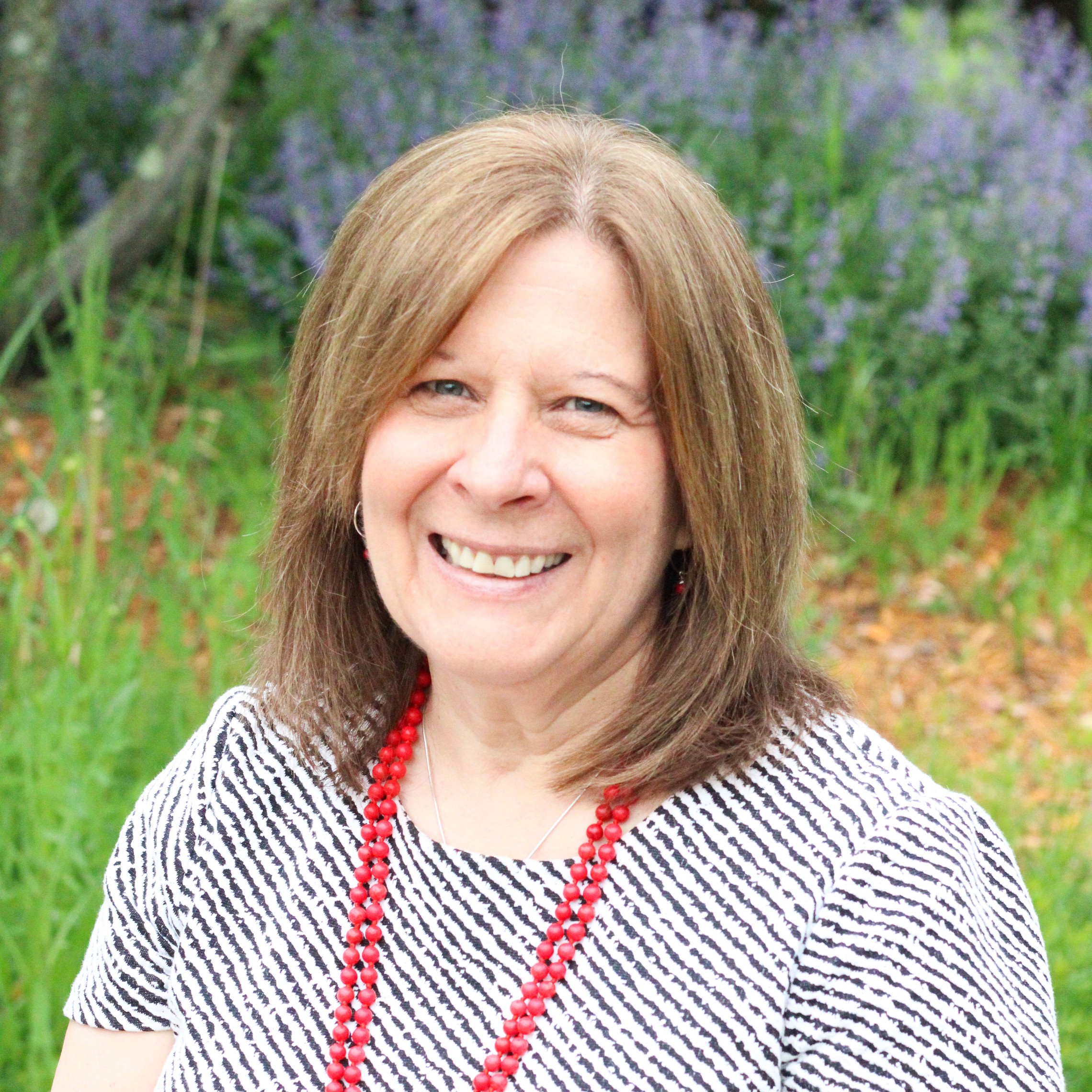
Birgitt Hacker
Birgitt Hacker is the Pastoral Associate for Adult Faith Formation at SMOY. Birgitt manages our Bible studies, RCIA, parish mission, and speaking events at SMOY. She is a graduate of UC with an MBA and undergraduate degrees in Operation Management and German. She is working on her Masters of Theology at MTSM. In her free time, Birgitt enjoys gardening, cooking, and reading.
Spotify Playlists
Uplifting music for our journey of faith.
(You'll need a free Spotify account to listen)





